| Places | |
|---|---|
| Accession Number | RCDIG0001391 |
| Collection number | PR05050 |
| Collection type | Digitised Collection |
| Record type | File |
| Item count | 1 |
| Object type | Diary |
| Physical description | 118 Image/s captured |
| Maker |
Pocock, Mary Anne 'Bessie' Various |
| Place made | Australia, France, Western Front |
| Date made | 1916-1917; 2006 |
| Conflict |
First World War, 1914-1918 |
| Copying Provisions | Digital format and content protected by copyright. |
Transcript of diary of Mary Ann 'Bessie' Pocock, 1914-1918 (Vol. 3)






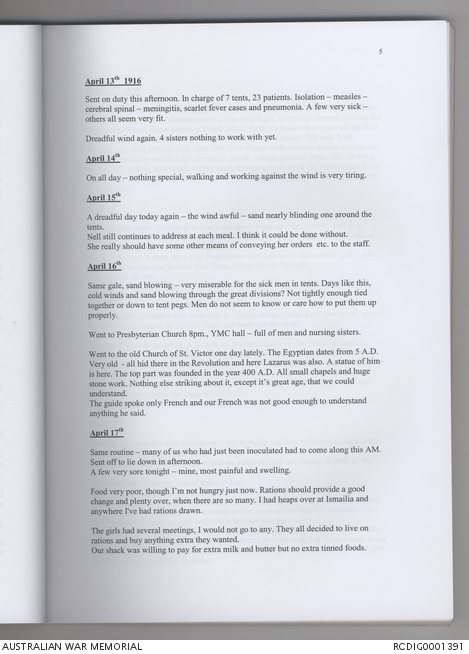







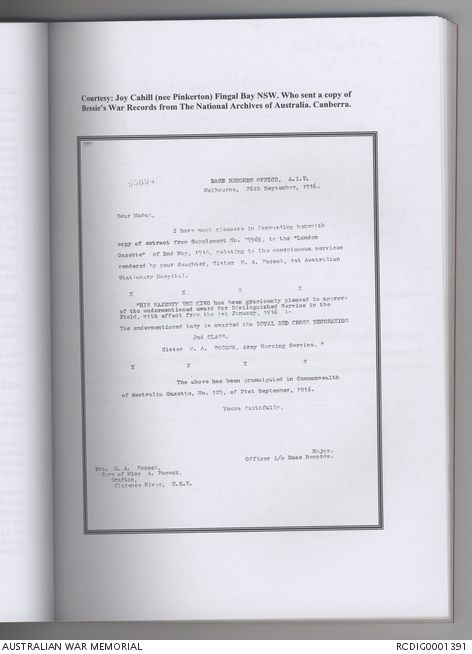

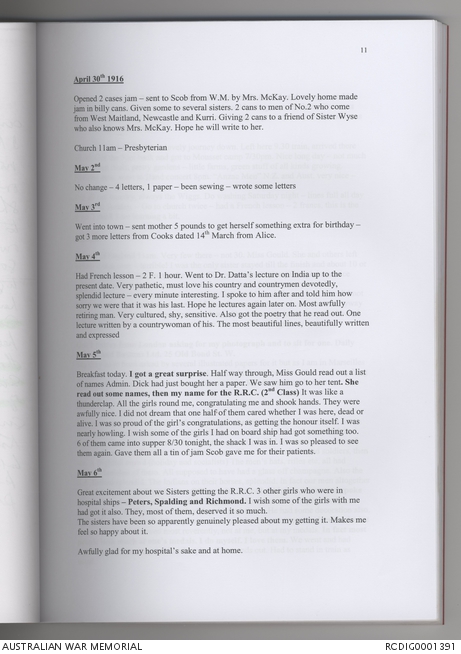








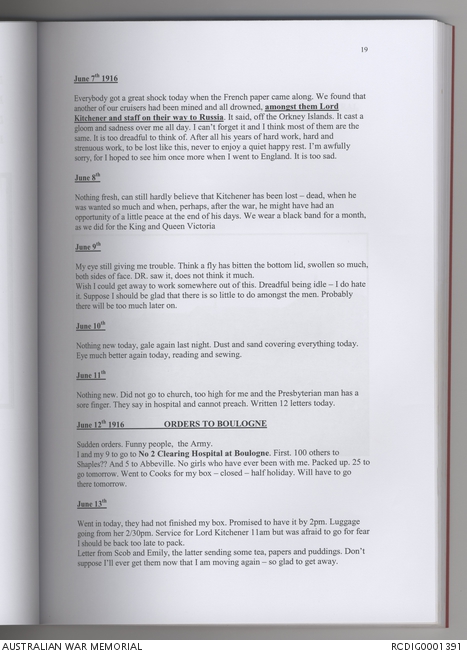











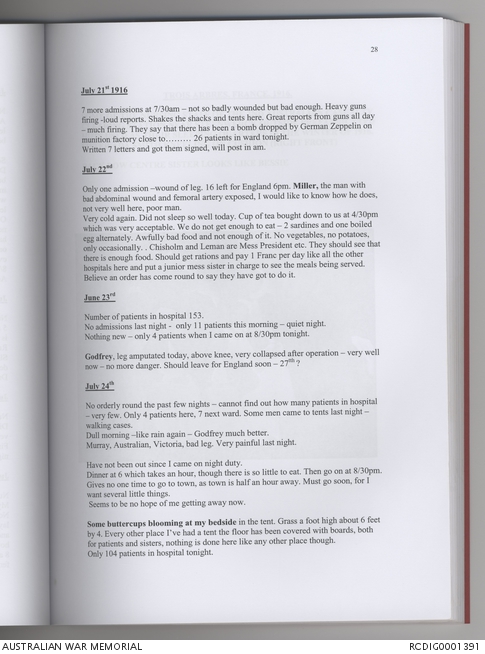



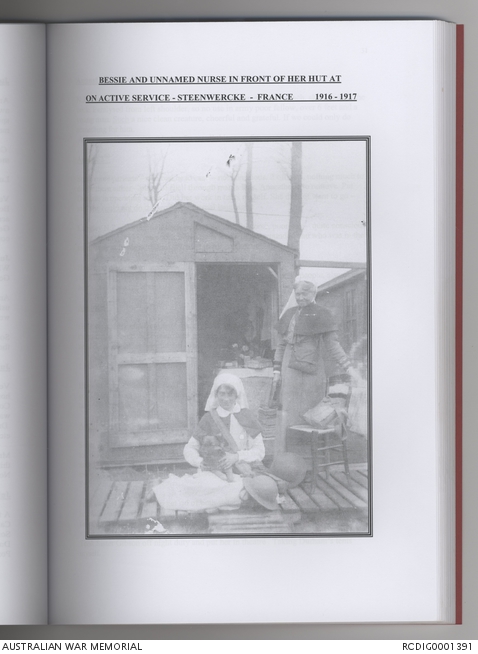

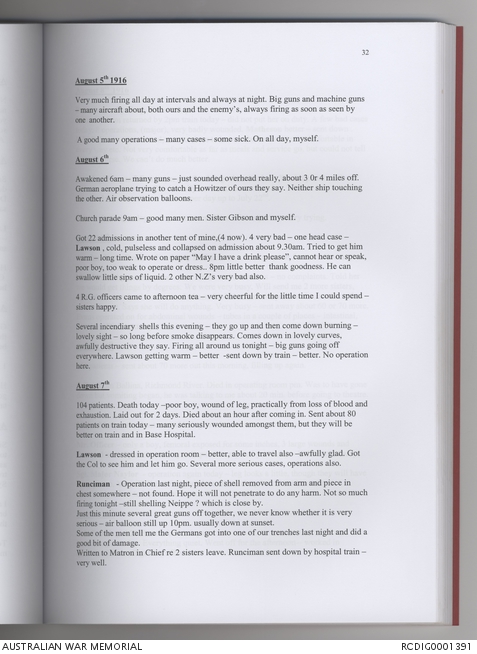





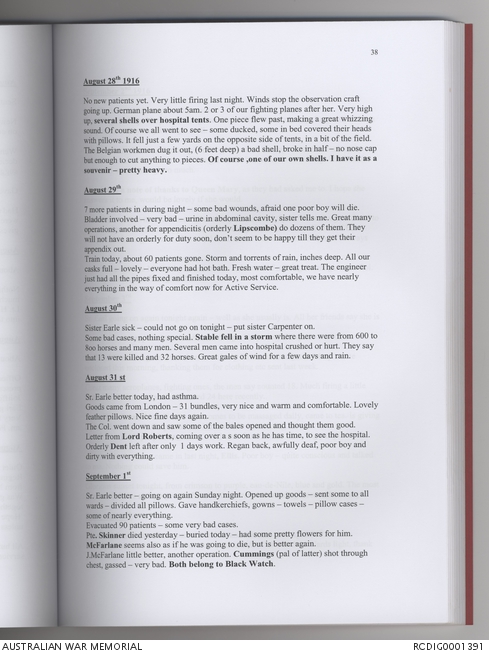

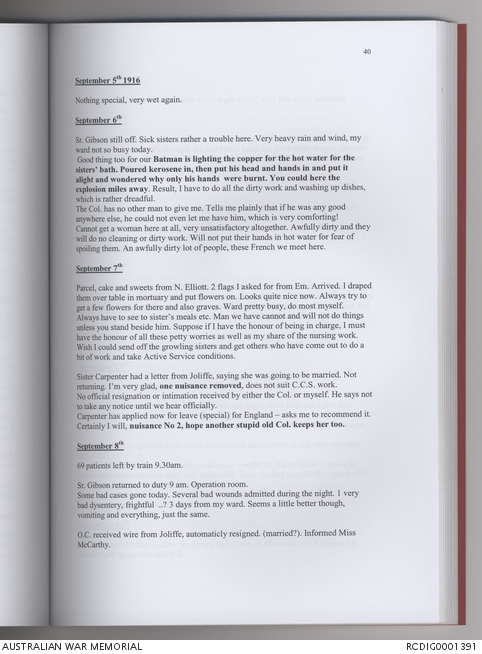






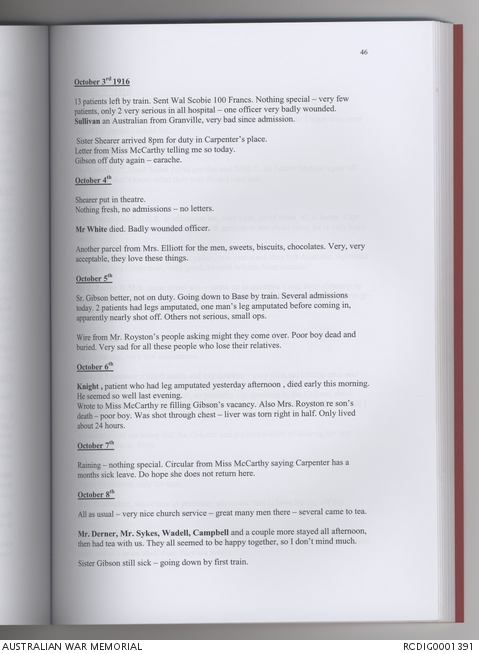





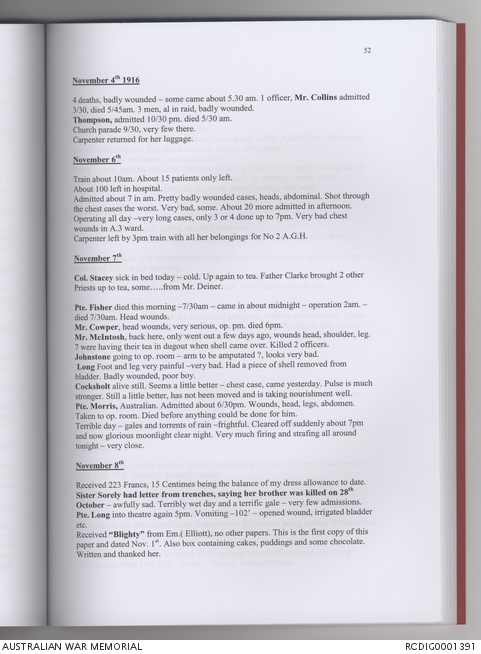
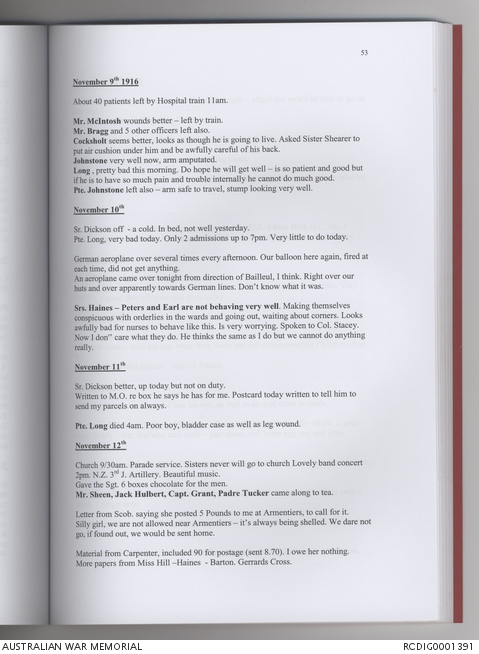




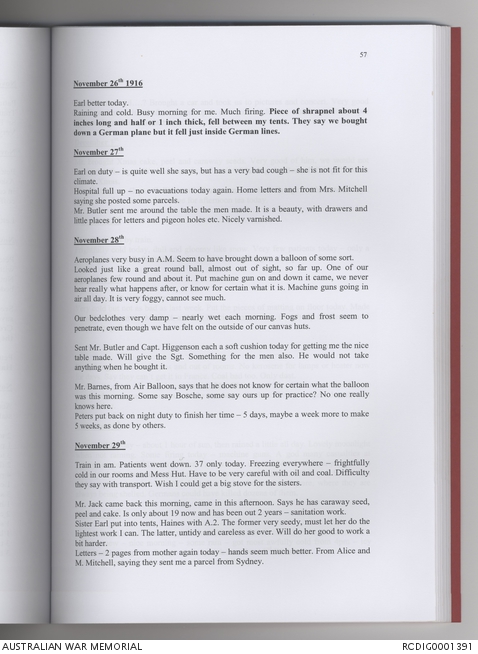








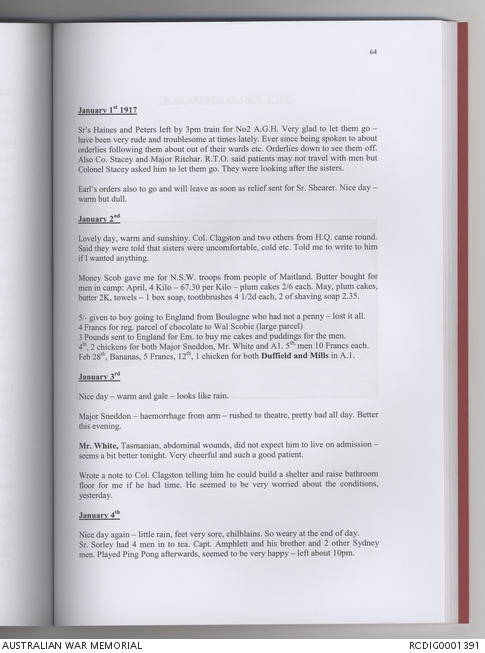













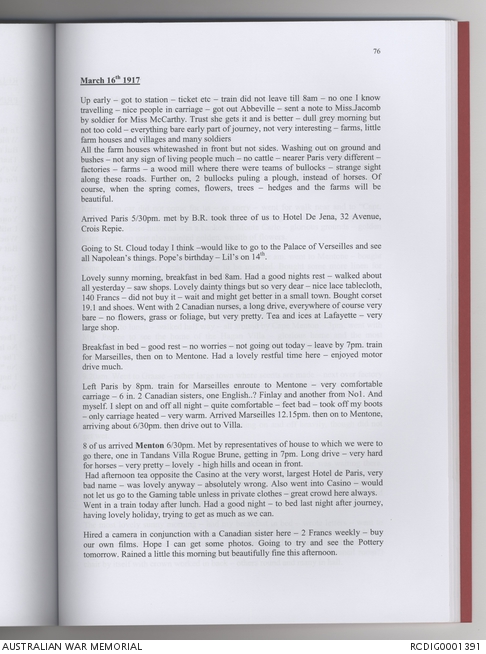






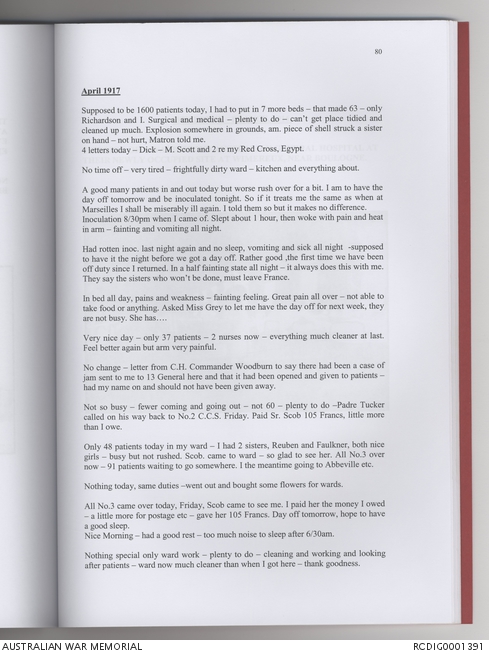












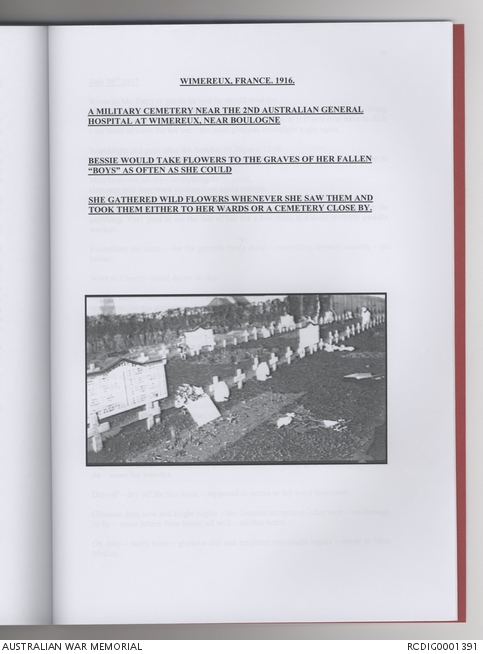




Transcript of the First World War diary of Matron Mary Ann (Bessie) Pocock, Australian Army Nursing Service (AANS). The transcript was compiled by members of Pocock’s family and produced in 2006. The transcript itself covers the period from 5 April 1916 to 10 October 1917, detailing her nursing service at in France. Bessie begins by detailing her arrival in France on 5 April 1916 on the hospital ship ‘Braemar Castle’ after completing her service in Egypt. There she joins the 2nd Australian General Hospital (2AGH), which was temporarily stationed at Moussot before moving to Wimereux. Whilst at the Moussot camp, Pocock remarks on the tents and the terrible weather, as well as the poor rationing of food and lack of vegetables. After moving to Wimereux, she describes how she would gather wild flowers and place them on the graves of those soldiers buries near the hospital. Included in the transcript is picture of the wards of 2AGH at Wimereux. In July 1916, she became matron of the 2nd Australian Casualty Clearing Station (2ACCS) at Trois Arbres near Steenwerck. Included in the transcript is a picture of Pocock, in front of her hut whilst serving with the 2ACCS. In April 1917, she rejoined the 2AGH which was now at Boulogne and included in the transcript is a photograph of the wards at the time. Throughout the transcript, Pocock describes the daily routine and activities she and her fellow nurses were engaged in. She also details her treatment of wounded and ill patients and records such details as their temperature, the specificity of their ailments, and the medical procedures that took place. Pocock details several humorous anecdotes, in particular regarding the hired help at the hospitals. The transcript also contains a copy of the song “Follow Me Home”, written by Lily Elliott.